Meet Haley Jenkins (she/her)
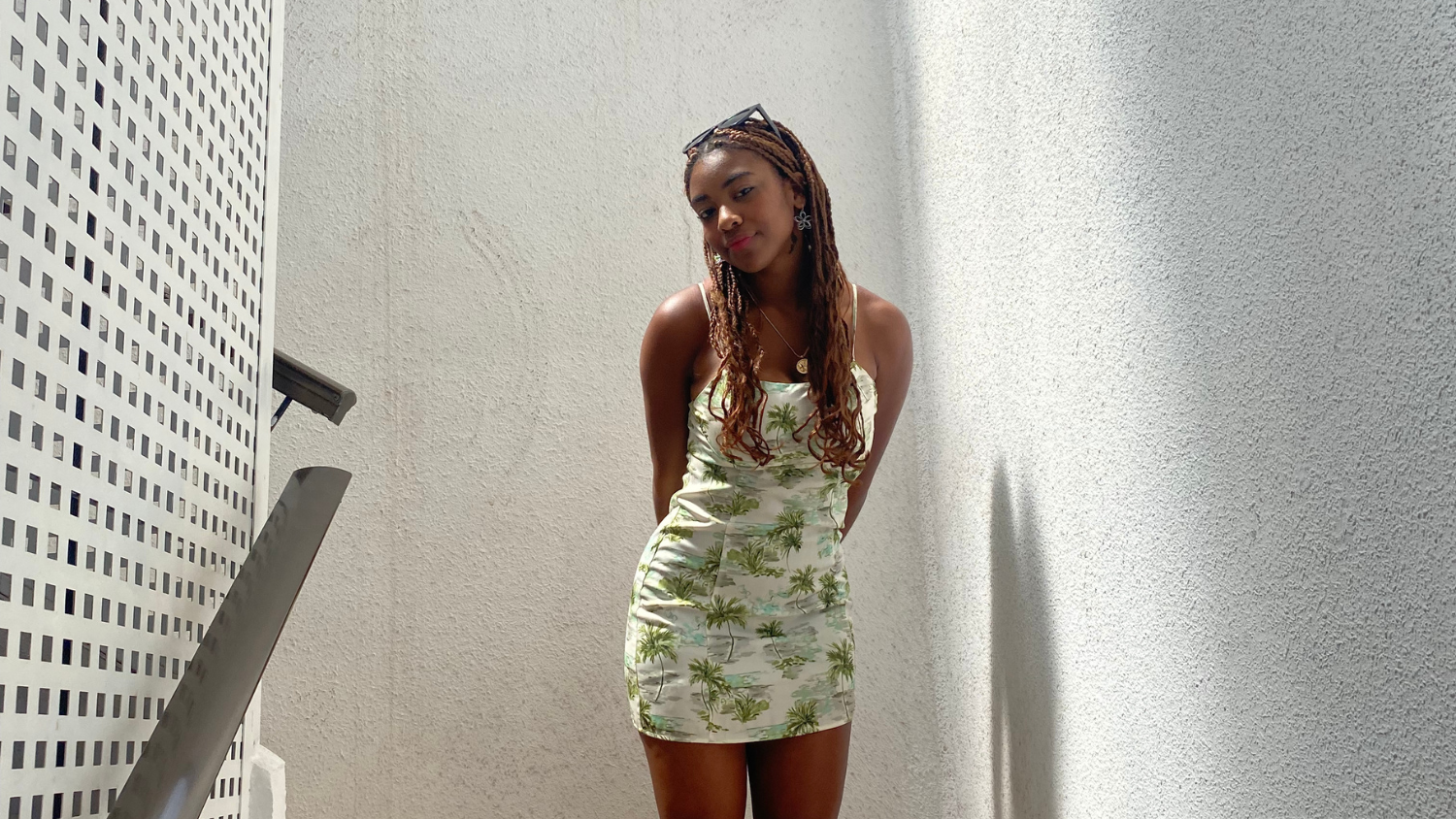
Program and Location:
Summer, Language and Culture in Valencia; Valencia, Spain
Major/Minor:
Sustainable Materials and Technology with Spanish Literature minor
Why did you choose to study abroad?
I studied abroad because I wanted to develop an authentic knowledge of Spanish. As someone who has no family that speaks Spanish, it was important to me that I experienced the culture first hand. Studying abroad was my way of real world practicing everything I’d taught myself.
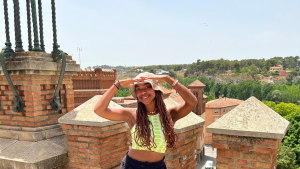
What did you learn about yourself?
I learned that adapting is not easy when you have to adapt all the time. For my experience in Spain, I felt less connected to the country when I was forced into conflicting experiences. While abroad I had difficulty navigating maps/ roads, lost my dog while overseas, and constantly experienced language barriers between my host family and I. The thing about learning a language is that it takes patience and willingness to be able to make educated guesses and learn the context that surrounds you. Sometimes you have no idea how to communicate your emotions, but that is what is fun about truly being fluent; being able to communicate when you are not in your optimal American classroom environment. I learned that language opens doors for me and allows me to hear more of the world. I learned that adapting is not being able to conform easily, but being able to work under challenging conditions and still trying to find a solution.
What was one of your favorite parts of your program?
One of my favorite parts of my program was the dinners I’d have with my host family. I lived with a couple in their mid 30’s. A woman named Gema who was a chemical engineer and a man named Carlos that worked in a famous museum near where we resided. Every night we had dinner together and I learned about common Spanish expressions, slang, mannerisms specific to their country, and experienced what it was like to verbally exchange details of our culture. I showed them lots of pictures on my phone of my hometown in America. I told them about my life living by the Topsail Beach, my family, NC state, and things I like to do. They also exchanged stories of their lives as teenagers, knowledge of the different languages in Spain, as well as playing a few games of what I call “cultural charades.” There was this one instance where they tried to tell me how to say “stick bug” in Spanish. It took pointing at the branch of plant near the table we were sitting at for me to fully grasp it.
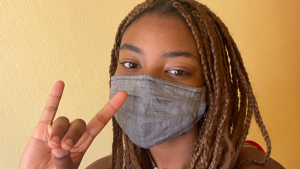
What was your experience with navigating COVID-19 abroad?
At first I thought the risk of COVID-19 was low until some students in my class of 30 and a teacher in the program contracted the illness. We had to wear masks in classrooms, any form of public transportation, pharmacies, and on class trips. Occasionally, the masks made it difficult to understand what the professors were saying. I feel as if reading lips helps me to understand what someone is saying, so the masks being mandated made it harder in my Spanish classes because it was all hearing and no visual cues. Other than that, students were required to be tested regularly. If anyone was positive for COVID-19 they were immediately put into isolation.
How did your study abroad experience prepare you for your future career?
Study Abroad taught me how to navigate professional settings and allowed me to better my confidence. Before study abroad I was afraid to speak Spanish to strangers, and especially to native speakers. I had also never been on a plane before, never flown by myself, never traveled anywhere without my parents, and never had the responsibility of truly being independent. Study Abroad taught me how to be punctual and arrive on time when the circumstances aren’t always optimal. It also prepared me for potential interviews in different languages versus my native language of English. After experiencing an authentic Spanish from natives in the area I feel confident in my ability to speak to professionals and increase my options in the job market. I feel prepared for interviews, internships, and research in both Spanish and English. Which is music to my ears because I grew up in an English speaking household with no Spanish influence. Study Abroad has quite literally doubled my networking opportunities and opened my eyes to positions across the world.
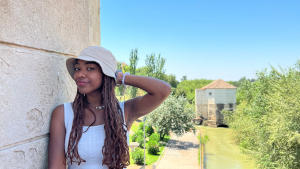
Is there any advice you would give to other students who share your identity?
I would let other black students know that they should embrace themselves and their skin. In places where you are the minority, its easy to be caught up in the self awareness of your skin tone. I would recommend reaching out to those support systems and other POC that relate to the same experience. You are not alone, and you should value the skin that you’re in.
What advice do you have to future study abroad students?
My advice to future study abroad students would be to expect the unexpected, and to be realistic with their expectations. It’s easy to romanticize traveling to other countries and imagine that every moment will be like a movie. Though every country has their own flaws, it will not always be glamorous. Be open to what you see and experience, try to be immersive into the culture and get ready to get outside your comfort zone in every way. Having a culturally relative mindset will save you in foreign countries. While abroad I experienced what it was like to live in a drought, have no AC for five weeks, pay for water in restaurants, be the person with the accent, and endure what it was like to take on the identity of an American. Instead of thinking “I’m the outsider, I can’t adapt.” Try thinking of “this is new to me, what can I learn about this culture to truly understand what it’s like to be a native here.”
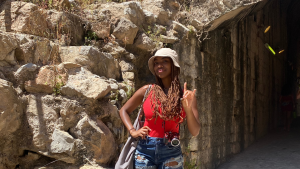
Would you do it again?
I would absolutely study abroad again in a heartbeat. Traveling has always been something I’m interested in. I love meeting new people, visiting new places, communicating in different languages, and creating more diverse memories.